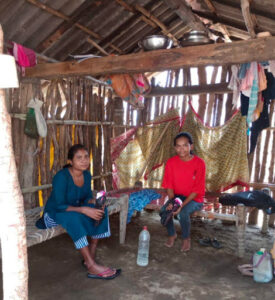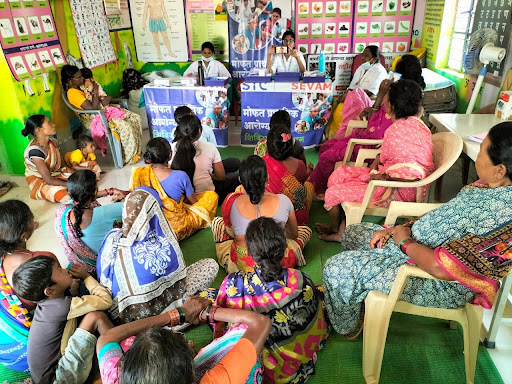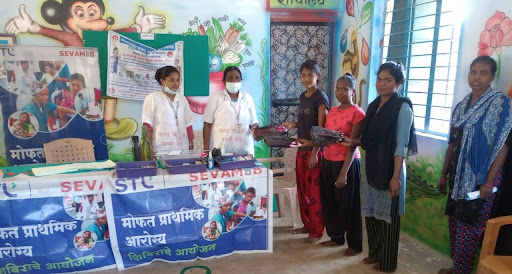Gadchiroli is a tribal district located in the eastern part of Maharashtra, India. It is renowned for its lush green landscapes and rich natural beauty. The area includes dense forests with a variety of tree species, medicinal plants, and wildlife, making it an ecologist’s delight.
Tribal culture is prominent, with traditional festivals, dances, and rituals an integral part of the region’s social fabric. Though it has a unique blend of natural beauty and cultural richness, Gadchiroli faces significant challenges such as underdevelopment, lack of infrastructure, and limited access to education and healthcare.
A cultural practice impacting women’s well-being
‘Kurma Pratha’ is a practice prevalent in tribal communities of Gadchiroli. It holds significant cultural and social importance among the tribal populations. Kurma Pratha involves a ritualistic ceremony that is performed to appease deities and ancestors. Though it is often conducted to seek blessings for prosperity, good health, and protection from natural calamities, a common practice is prevalent in the tribal community associated with this ritual. According to this practice, women during their menstrual cycle are not allowed to stay in their houses as they are considered ‘apavitra’ (impure). Instead, they are required to stay in a hut outside the home throughout their menstrual cycle without basic facilities such as drinking water and electricity.

Access to clean water, proper sanitation facilities, and menstrual hygiene products is essential to ensure women’s health. The communal nature of Kurma Pratha can pose challenges for maintaining hygiene and sanitation, particularly in rural settings. Many women face critical health issues during this time, and often, no one comes to their aid even when it’s a matter of life and death.
It is important that women have access to healthcare services. This includes access to traditional healers as well as modern medical facilities for any health issues that may arise. Outreach programs and mobile health units can play a vital role in providing necessary healthcare during such events.
STL stepped in to raise awareness among villagers about women’s health
To address this issue, our team has begun working towards raising awareness among the villagers. In addition to our regular health camps, we have also organised special awareness camps focusing on dispelling myths surrounding the ‘Kurma Pratha.’

In the span of one year, our team took the following initiatives:
- Conducting awareness sessions on the menstrual cycle and the benefits and use of sanitary pads
- Organising discussion forums highlighting the adverse impact of Kurma Pratha on women’s health and well-being
- Emphasising the importance of addressing this issue to ensure menstrual hygiene and overall health
- Sharing information about government initiatives such as the establishment of period homes to provide better facilities and support for women during menstruation, aiming to improve their living conditions and promote menstrual hygiene
Our doctor facilitated the event by sharing her own story and that of her mother, thus connecting with the audience on a personal level. She was an ideal speaker for addressing sensitive topics like menstruation and advocating for improved menstrual hygiene practices. Attendees were encouraged to advocate for the elimination of Kurma Pratha and the promotion of more supportive practices for women during menstruation.

The organising team scheduled follow-up meetings with participants to reinforce key messages and address any questions or concerns that arose after the event. We utilised various communication channels such as phone calls, text messages, and social media to stay connected with participants and provide continuous support and guidance.
We also planned to collaborate with local leaders and influencers to sustain community engagement and amplify the message beyond the event.
Conducting health education sessions focusing on nutrition, hygiene, and reproductive health can empower women with knowledge to care for their health during Kurma Pratha. By focusing on these areas, the health and well-being of women can be significantly enhanced, ensuring that they can fully partake in the cultural practices without compromising their health.




